The comics world is abuzz about Bill Willingham’s statement announcing he was putting Fables into the public domain yesterday, as a result of mistreatment by DC Comics. And now DC Comics has fired back with a rare corporate statement:
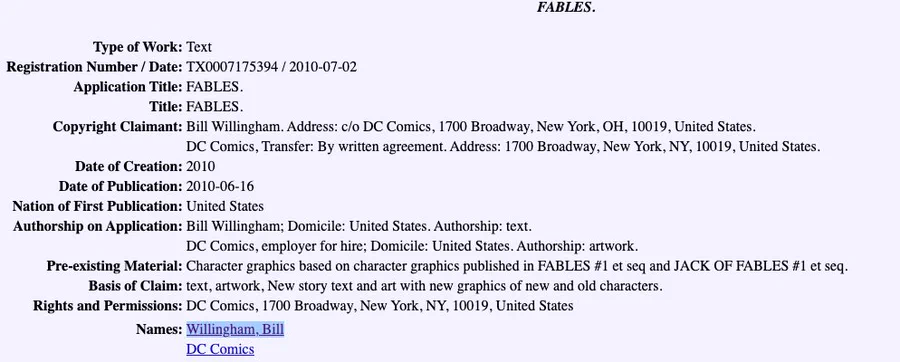
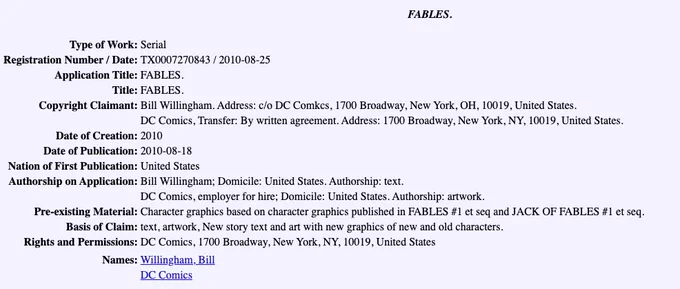
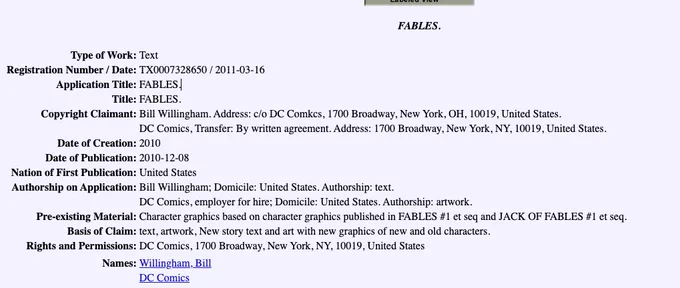
Untangling all of this is going to be a loooong process!
Willingham has made his own thoughts clearer on Twitter as well:
While much of the comics industry has responded with a “you go, guy!” for Willingham standing up for his rights against what sounds like some ham-handed creative unfriendly from DC Comics, he’s also come under fire for his anti-woke views, and past anti-Palestine, anti-abortion storylines in Fables.
https://twitter.com/HenryBarajas/status/1702475616203993163
Former Vertigo editor Stuart Moore also posted a cryptic statement on FB, suggesting that this story is just getting going!
And cartoonist James Owen has jumped on the “First!’ post by being the first, very tentative hat in the ring:
Bill Willingham is an old friend, and one of the earliest supporters of my creative work. I have Imaginarium Geographica novels in twenty-two languages. A FABLES-based novel written and illustrated by me, under the permission of his having declared his work to be public domain, would be a seismic event in the pop culture world. And I might do it – not just because I can, or because I have an affinity for the material – but to also put companies like DC Comics on notice: we don’t need you. But you are NOTHING without us.
The last part is an admirable sentiment, but as DC’s statement shows, they are going to fight back against any attempts to monetize Fables derivative works, aside from already legal fanfic.
Also a side note: it’s very rare for DC to release any kind of corporate statement, however in this case, part of defending a copyright is showing you are defending it, which the statement proves. And as Willingham accurately observed, very few people are going to be abel to outlast Warner Bros Discovery lawyers. Just this statement alone should dissuade anyone from going up against WBD.
I’m sure there will be more developments throughout the day so we’ll update this story as needed.


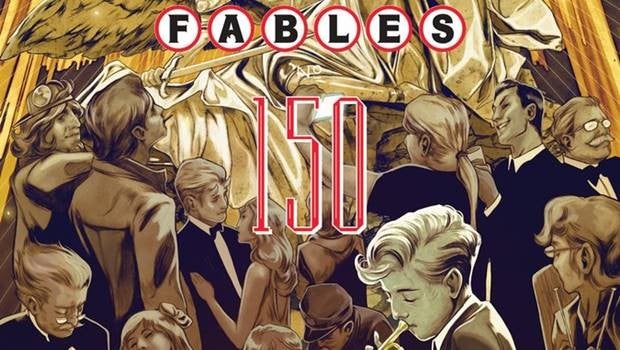

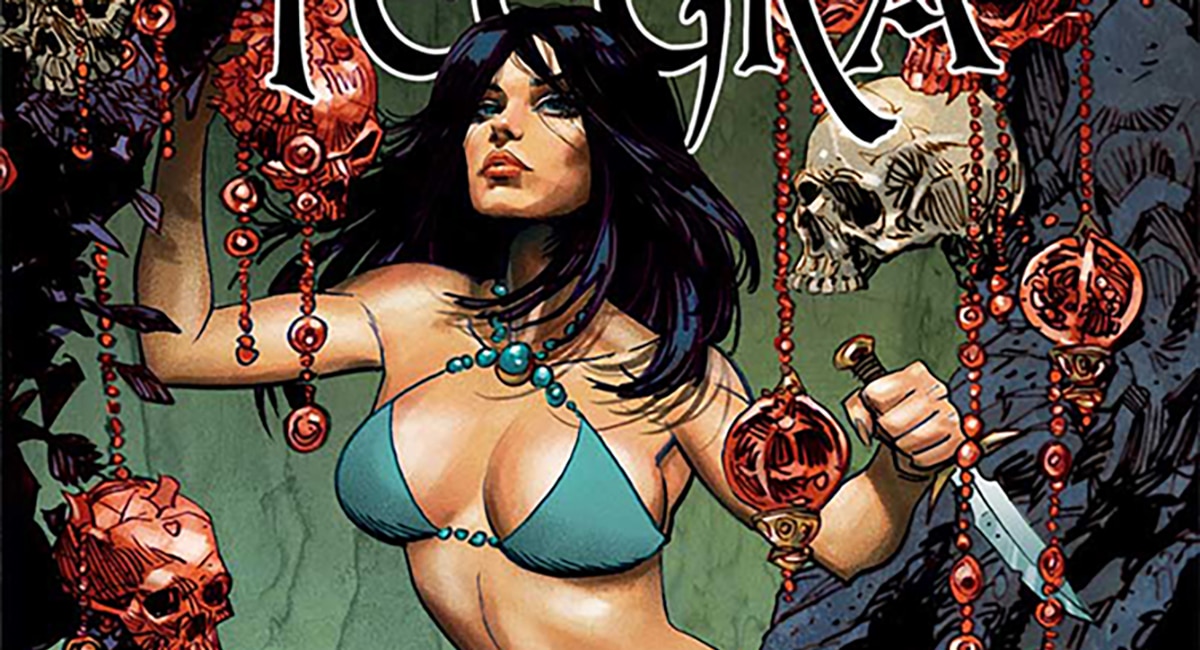
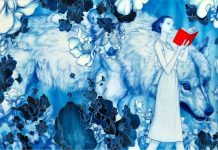




It has been about a decade since I reread Fables completely, but I don’t recall any “anti-Palestine, anti-abortion storylines in Fables.” Maybe I am just to dense to have noticed.
DC asserting ownership of the characters and settings if someone wanted to do something NEW seems shaky… but they have a legal team and random creators do not so they can nuisance lawsuit regular people into submission on the basis of legal fees alone…
You’re reading it backward. Everyone listed under claimant is the owner. If DC had given their share to Willingham, then he would be listed as the sole claimant by written agreement.
DC claims it owns the characters in a creator-owned comic after publishing copyright indicia for 21 years that states the creator owns all trademarks in the characters?
You can tell DC’s claim is bogus by going to the USPTO, where DC has trademarks on hundreds of characters it owns and zero trademarks on Fables.
It doesn’t own Fables. Comics Beat should put more scrutiny on any claims otherwise made by DC. Don’t let the big publishers make a land grab on the creator-owned comics they have published (and celebrated themselves for publishing).
@RC, a look at the indicia of any Fables comic or trade paperback, it clearly states that the stories are copyrighted by Bill Willingham and DC Comics.
Question (one of hundreds at this point, I’m sure): under ‘Authorship on Application’ it has Bill Willingham listed as ‘Authorship: text’ and DC as ‘Authorship: artwork.’ Does this mean that Bill owns the rights to his ideas and stories and DC owns the rights to the artwork? So like, you could write a new piece of fiction based on the stories, but you couldn’t base the characters or subjects directly on artwork from the comics? Kind of like with Anne of Green Gables–the copyright’s expired but they retain a stranglehold on the IP, so you can make a derivative work but can’t use any of the traditional AoGG visual representation or they’ll come after you. (A re-publisher of public domain books got around that by publishing AoGG with a picture of a blonde cowgirl on the front cover. It got a lot of notice for that move, but I’m pretty sure most of it involved hearty peals of laughter.)
Not a lawyer
I think this will muddy the waters for licensing and other revenue streams. My understanding is companies are supposed to do due-diligence to make sure the company they are getting a license from have the right to license it.
If anybody does that now they are going to come across that Willingham at minimum, co-owns Fables and he’s declared it public domain. That may make those interested in the license back off.
If, as Willingham has said, DC treats Fables like a WFH, license it out without sending anything to him for contract obligated approvals, is keeping all the money and adamantly refuses to stop doing this despite many years of negotiations, then I can see why Willingham has taken this action. It means DC likely won’t make anymore money from licensing Fables, which doesn’t hurt Willingham as he wasn’t getting his share of it anyway and may not have liked what DC was unilaterally approving for the license.
In short, DC refused to share the cake he baked, so he took a giant shit on it and is walking away.
@RJT Copyright and trademark are different things. Bill Willingham and DC Comics share the copyright on individual Fables comics and trade paperbacks. They do not share the trademark. Every Fables contains this text: “All characters, their distinctive likenesses and related indicia featured in this publication are trademarks of Bill Willingham.”
@RC But public domain deals with copyrights, not trademarks.
The public domain involves both. DC could have claimed that its co-copyright gave it co-ownership of the characters if it didn’t also state for 21 years that the characters, likenesses and related indicia are all trademarks owned by Willingham (and sign creator-owned contracts with him agreeing to the same).
The images above of the various Fables copyright applications don’t show that DC transferred ownership to Willingham. It shows DC as a co-claimant. The transfer statement there is probably a mistake as both DC and Willingham are authors of the work and therefore automatically claimants. If DC had transferred it away at the time the application was filed, there name and address wouldn’t be there. And for Willingham to have gotten sole ownership the phrase “by written agreement” would be by his name, not DC’s.
Also, DC being author of just the artwork doesn’t mean they aren’t owners of the text as well. This is what’s considered in copyright a joint work, a work created by more than one person. If even one person creates just text and the other just artwork, they both own everything.
One more comment regarding copyright/trademark. You don’t need to defend your copyright. The copyright does not stop being yours even if you don’t. A Trademark on the other hand you need to defend or you might lose it.
Caveat: I am not a lawyer.
But DC is not denying anything Willingham claimed, or in any way contradicting him. They are saying som of the same things he said, in different language. DC in particular did NOT say “Willingham doesn’t have the right to do what he did,” and if they believed that, they would have said it.
Willingham said: “my contracts with DC Comics are still in force. I did nothing to break them, and cannot unilaterally end them.”
DC said: “Fables comic books and graphic novels published by DC…are owned by DC.”
Willingham’s action relates to new work, and DC’s statement is primarily about existing content.
Now, what DC’s claim to “characters and elements” would mean, if litigated, is very much an open question. Doubly so because Willingham started with public-domain characters; neither he nor DC can claim to own Snow White. Bigby Wolf, though, is probably distinctive enough to be fought over.
Personally, I wish Willingham had consulted with an IP lawyer and issued a specific Creative Commons release, specifying what exactly he owned and how he was releasing it. But he’s a writer, so he wrote a long screed instead.
And, if as Jamie Coville speculated above, his real goal is to screw up the revenue streams DC has been refusing to share with him (in violation of his contract), then he will definitely do that. That’s basically my opinion as well. He’s poisoning a well, because the co-owner of that well has repeatedly refused to share revenue as they were required to do.
gbhhornswoggler: You took out the “and the storylines, characters and elements therein” from your “Fables comic books and graphic novels published by DC…are owned by DC.” quite and that’s the important one. It is one thing from DC to say that the books published by them are copyrighted by DC, but adding the “storylines, characters and elements” they are taking ownership of not just the books they published, but everything else as well, effectively saying that Willingham does not have any rights to making Fables public domain.
DC may made a few missteps but at least they aren’t bigots.
Interesting.
This story is almost as interesting as the news that Comics Beat’s personal friend Stephanie Cooke embezzled money from Mr Willingham.
You people are tiresome and hilariously, fatuously wrong.
Comments are closed.